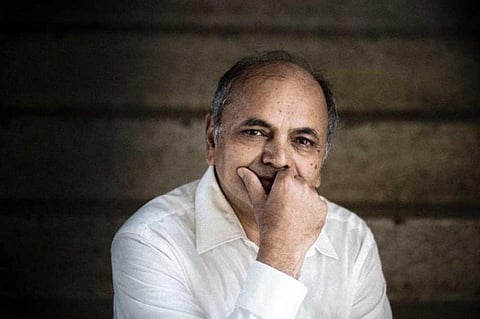Future languages will be less ‘auditory’ and more ‘pictorial’: G N Devy
Scholar and linguist Ganesh Narayan Devy has just launched a new book, India: a linguistic civilisation about the multiple linguistic realities of India as a nation. He spoke to Down To Earth about the very future of language. Edited excerpts:
1. What made you think of writing this book?
I have been studying Indian languages for the last five decades. Over these decades, I realised that the emotional relationship between speakers of languages and the languages which I notice in India is of a significantly different kind than that prevailing in respect of many languages outside India. Investigation in the high sentimental investment in languages led me to realise that language had played a major role in determining social structures as well as cultural practices in India. Therefore, I thought I should write about this phenomenon. Earlier scholars have described Indian languages in terms of their families (as is done in linguistics for all languages in the world). About half a century ago, the ‘Family’ metaphor was sought to be substituted by the ‘Area’ metaphor and linguists started speaking of the Indian language situation as ‘Language Area’. I found it necessary to bring in much more of the social and historical context for making the description fuller. Hence, India as a ‘Linguistic Civilization’ became necessary as a book.
2. Today, when language death is an increasing phenomenon, what would you advise to governments and other stakeholders to keep these tongues alive?
Quite frankly, I do not think I would like to offer any advice to the government. The reason is that governments do not either create languages or cause their deaths. Language as a social system of symbols is so autonomous of governments that, in my opinion, the issue need not be lodged in government quarters. Speakers of languages manage to keep languages alive despite great adversities. And one’s hopes need to be turned to the speech communities. However, when a speech community perceives that there is not enough livelihood opportunity in the language it uses, it starts deserting that language and begins migration to another ‘useful’ language. Therefore, creating enough livelihood opportunities for people is the most effective way of language maintenance. It is there that government policies become important. In short, the shrinking of diversity can be cured by a more democratic distribution of livelihood and resources.
3. What place do memory and oral practices have in today’s world where younger generations are discarding even the written word?
Artificial memory and artificial intelligence are in use today as no other technology used by humans ever before.
Both of these technological advances have started making a huge impact on humans’ natural memory. Obviously, this has also impacted the human ability for language recall. The first causality in the process is the oral tradition. We are witnessing a massive depletion of oral songs and stories. It is almost as if a whole continent of human history is getting submerged. That is sad, but irreversible. However, if a whole civilisation is founded on multilingualism, the language loss caused by the technological advance, the question of the continuation of civilisation itself gains urgency.
4. Where does humanity go from here as far as language is concerned? Will our ‘Babel’ survive?
There is very little chance that natural languages created by humans in past eras will continue to exist in their current form. Already, most languages have lost a lot of their ability for forming metaphors. The future languages will be less ‘auditory’ and more ‘pictorial’. They will be using graphics more than sound. The nature of abstraction-capabilities of those languages will be much different from the abstraction-handling which natural languages have evolved. We are all rushing into a new and virtual universe. In the bargain, we are surrendering the languages that our ancestors created and bequeathed to us. Alas, but inevitable.


